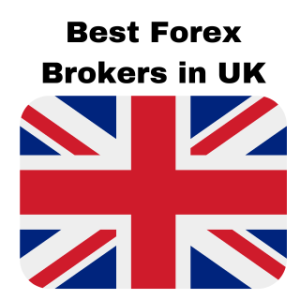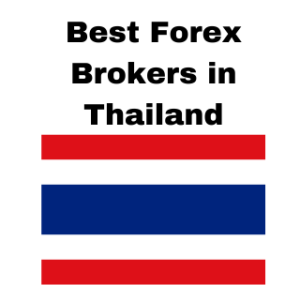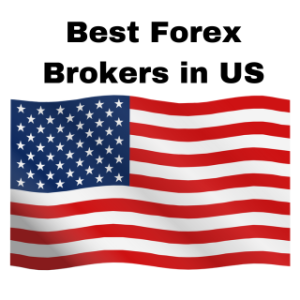Forex trading in Canada has seen steady growth over the years, appealing to both retail and institutional investors. With a mature financial market, high liquidity, and access to cutting-edge trading technology, Canadian traders have a wealth of opportunities.
This article provides expert reviews and rankings of the best forex brokers in Canada for 2026, covering everything from market trends and regulatory environments to broker comparisons and practical trading advice.
Overview of Forex Trading in Canada
Forex trading in Canada is becoming an increasingly popular investment avenue. This growth is driven by a combination of mature financial markets, innovative technology, and robust investor protection frameworks.
Market Landscape
Canadian traders enjoy access to deep liquidity and a stable market environment. The country’s financial markets are mature, offering diverse instruments and competitive pricing. Whether you are a beginner or a seasoned investor, Canada’s forex market provides a rich trading landscape supported by advanced technology and real-time market analytics.
Regulatory Environment
Trading in Canada is rigorously regulated by the Investment Industry Regulatory Organization of Canada (IIROC) along with various provincial securities commissions. These bodies enforce strict standards that include:
- Capital Requirements: Brokers must maintain adequate capital reserves.
- Transparency and Risk Management: Clear disclosure of trading risks and robust risk management practices are mandatory.
- Investor Protection: Regulations ensure the segregation of client funds and enforce stringent measures to safeguard investors.
This strong regulatory framework instills confidence among traders and contributes to a secure and transparent trading environment.
Trends for 2026
As we look ahead to 2026, several key trends are emerging in the Canadian forex market:
- Mobile Trading and Algorithmic Trading: An increasing number of brokers are optimizing their mobile platforms to offer seamless trading on the go. At the same time, algorithmic trading continues to gain traction, enabling faster, automated execution of trades.
- Enhanced Real-Time Analytics and Charting: Brokers are integrating sophisticated real-time analytics and advanced charting tools into their platforms. These improvements help traders make informed decisions quickly.
- Social Trading and Cybersecurity Focus: Social trading features are becoming more prevalent, allowing traders to share insights and strategies. Additionally, with cyber threats on the rise, there is a continuous focus on strengthening cybersecurity and ensuring compliance with regulatory standards.
Which Is the Best Forex Broker in Canada?
Selecting the right broker depends on your trading needs, experience level, and the type of trading tools you prefer. Here are detailed profiles of some top brokers favored by Canadian traders.
OANDA
OANDA is a popular choice among Canadian traders due to its competitive spreads and reliable execution. The broker is known for its transparent pricing, extensive research tools, and a user-friendly platform that caters to both beginners and advanced traders.
With a focus on simplicity and efficiency, OANDA provides a trading environment where clear data and analysis help inform every decision.
Forex.com
Forex.com is renowned for its robust trading platforms and comprehensive market analysis. This broker stands out with its competitive spreads and strong educational resources that cater to traders seeking both advanced tools and a secure trading environment.
Forex.com’s commitment to regulatory compliance and transparent practices makes it a top contender in the Canadian market.
CMC Markets
CMC Markets is celebrated for its innovative technology and advanced charting tools. It offers low fees and, in many cases, no minimum deposit on certain account types, making it accessible to traders of all levels.
With comprehensive research materials and an intuitive interface, CMC Markets appeals to those who value technological sophistication along with affordability.
Canadian Forex Brokers List
Below is a detailed comparison table of some leading Canadian forex brokers regulated by IIROC and provincial authorities. This table includes key metrics such as broker reviews, spreads, minimum deposits, and overall ratings.
| Company | Broker Reviews | Regulated by IIROC/Provincial Authorities | Avg. Spread EUR/USD (Standard) | Minimum Deposit | Trust Pilot Score | Overall Rating | Company Website |
|---|---|---|---|---|---|---|---|
 |
Read Review | ✅ Yes | 0.59 | $0 |  |
4.7/5 | Visit Site |
 |
Read Review | ✅ Yes | 0.61 | $0 |  |
5.0/5 | Visit Site |
 |
Read Review | ✅ Yes | 1.4 | $100 |  |
4.5/5 | Visit Site |
 |
Read Review | ✅ Yes | 0.93 | $100 |  |
4.6/5 | Visit Site |
 |
Read Review | ✅ Yes | 1.6 | $0 |  |
4.5/5 | Visit Site |
 |
Read Review | … | 1.2 | $100 AUD |  |
4.5/5 | Visit Site |
 |
Read Review | … | 1.30 | $50 |  |
4.2/5 | Visit Site |
 |
Read Review | ✅ Yes | N/A | $250 |  |
3.5/5 | Visit Site |
Note: Minimum deposit amounts and spreads are approximate and may vary with market conditions and account types. Always verify details on the broker’s official website.
Is Forex Trading Legal in Canada? / Can I Trade Forex in Canada?
Forex trading in Canada is fully legal. Canadian brokers must adhere to the stringent regulations enforced by IIROC and, in many cases, provincial securities commissions. This regulatory oversight ensures that brokers maintain strict financial standards, robust risk management practices, and transparency in all their operations.
Regulatory Oversight and Investor Protection
- Registration and Compliance: All brokers operating in Canada must be registered with IIROC, and many are also approved by provincial authorities.
- Investor Protection Measures: Regulations require brokers to segregate client funds, provide clear disclosure of trading risks, and maintain stringent risk management protocols. These measures protect investors and enhance market integrity.
What Are the Most Trusted Forex Brokers?
Trust is a crucial factor when choosing a forex broker. In Canada, several brokers have built strong reputations based on regulatory oversight, longevity, and positive client reviews.
Establishing Trustworthiness
Key factors that determine a broker’s trustworthiness include:
- Regulation: Being overseen by IIROC and relevant provincial authorities.
- Experience: Brokers with a long history in the market demonstrate stability and reliability.
- Client Feedback: High ratings and consistently positive reviews reflect a broker’s commitment to quality service.
- Transparency: Clear fee structures, accessible customer support, and robust educational resources are essential.
Top Trusted Brokers
OANDA, Forex.com, IG Group, and FXCM are frequently mentioned as some of the most trusted brokers in Canada. They are known for their adherence to regulatory standards, comprehensive market tools, and commitment to customer support.
What Is Canada’s Largest Broker?
Among Canadian forex brokers, Forex.com often stands out as one of the largest based on its high trading volume and extensive client base. Its dominant market position is supported by a wide range of financial instruments, robust liquidity, and a comprehensive suite of trading tools.
Forex.com’s expansive market reach and consistent performance make it a key player in the Canadian forex industry.
Is Forex Taxed in Canada?
Trading profits in Canada are subject to taxation, and traders need to understand the tax implications of forex trading.
Tax Implications and Record-Keeping
- Capital Gains or Income: Depending on the trader’s activity, profits from forex trading may be treated as capital gains or as regular income.
- Detailed Record-Keeping: It is essential to keep accurate records of all trades, including dates, amounts, profits, and losses. This information is critical for accurate tax reporting.
- Professional Advice: Consulting with a tax professional is highly recommended to ensure compliance with Canada Revenue Agency (CRA) guidelines. Using accounting software or spreadsheets can help simplify record-keeping and tax preparation.
Can I Trade Forex with $100?
Entry-level trading options make it possible for new traders to start with minimal investment. Many Canadian forex brokers offer micro or mini accounts, allowing you to begin trading with as little as $100 (or the equivalent in Canadian dollars).
Benefits of Low Minimum Deposits
- Risk Management: Starting with a small deposit minimizes risk while you learn about market dynamics.
- Learning Opportunities: Low initial capital lets you experiment with different strategies and build confidence.
- Accessibility: Brokers like OANDA and Forex.com provide low minimum deposit options, making forex trading accessible to beginners.
Can I Use MetaTrader in Canada?
MetaTrader 4 (MT4) and MetaTrader 5 (MT5) remain popular choices among Canadian traders due to their advanced charting tools, automated trading capabilities, and customizable interfaces.
Platform Integration and Advantages
- Widespread Adoption: Many Canadian brokers, including OANDA and Forex.com, offer MetaTrader platforms alongside their proprietary systems.
- Advanced Tools: The MetaTrader suite provides sophisticated technical analysis, automated trading through Expert Advisors (EAs), and an interface that can be tailored to your needs.
- Ease of Transition: Both demo and live accounts are available on MetaTrader, allowing for a smooth transition as you gain experience.
What Is the Best MT4 Broker in Canada?
For traders who prefer using MT4, selecting a broker that offers a well-optimized version of the platform is essential.
Top MT4 Broker Options
- OANDA: Known for its optimized MT4 platform that delivers competitive spreads, fast execution, and a reliable trading environment.
- FXCM: Offers a robust MT4 setup complemented by extensive educational resources and a user-friendly interface.
- Additional Considerations: When choosing an MT4 broker, evaluate factors such as ease of use, quality of technical analysis tools, and the seamless transition from demo to live trading.
Which Bank Is Best for Forex Trading?
There is a distinct difference between traditional banks and dedicated forex brokers when it comes to forex trading.
Banks vs. Dedicated Forex Brokers
- Traditional Banks (e.g., RBC, TD, Scotiabank):
- Offerings: Primarily provide currency exchange services rather than specialized trading platforms.
- Limitations: Generally feature higher spreads, lower leverage, and fewer advanced trading tools.
- Dedicated Forex Brokers:
- Advantages: Offer significantly tighter spreads, higher leverage options, and advanced trading platforms specifically designed for forex trading.
- Overall Experience: For active forex trading, dedicated brokers provide a more focused and superior trading experience compared to traditional banks.
Which Forex Broker Has the Lowest Fees?
When it comes to cost efficiency, understanding fee structures is crucial. Brokers typically charge fees through spreads and sometimes commissions.
Analyzing Fee Structures
- Spreads: This is the difference between the bid and ask prices. Lower spreads can significantly reduce trading costs.
- Commission Fees: Some brokers charge a commission on each trade; transparency in these fees is important to avoid hidden costs.
Leading Examples
Brokers like OANDA and Forex.com are known for their competitive and transparent fee structures. For instance, OANDA might offer an average spread of around 0.8 pips with low and transparent commissions, while Forex.com often provides competitive spreads that are attractive to cost-conscious traders.
Always compare the current fee schedules on the broker’s website before making a decision.
How to Start Trading in Canada
For beginners, starting in the forex market can seem challenging. However, following a structured approach can make the process much easier.
Step-by-Step Guide for Beginners
- Research and Select a Broker:
Look for brokers with good reviews, proper IIROC and provincial regulation, and competitive fee structures. - Open an Account:
Complete the online registration and submit the necessary documents for KYC verification. - Fund Your Account:
Deposit funds using bank transfers, debit/credit cards, or supported e-wallets. Choose an amount that aligns with your risk tolerance. - Download the Trading Platform:
Install your chosen broker’s software (whether it’s MT4, MT5, or a proprietary platform) and set up your trading workspace. - Practice with a Demo Account:
Use a demo account to familiarize yourself with market conditions and test your strategies without risking real money. - Begin Live Trading:
Once confident, transition to live trading while employing robust risk management tools such as stop-loss orders and proper position sizing.
How Do I Find a Good Forex Broker?
Finding a reliable forex broker in Canada requires careful evaluation. Use the following checklist to ensure you choose a broker that meets your needs:
- Regulation: Verify that the broker is registered with IIROC and meets all provincial standards.
- Trading Costs: Review the spreads, commission fees, and any potential hidden charges.
- Platform and Tools: Evaluate the quality of the broker’s charting software, technical indicators, and overall user interface.
- Customer Support: Test support channels to ensure the broker provides prompt and effective assistance.
- Reputation: Read independent reviews and testimonials from current clients.
- Educational Resources: Look for brokers that offer free webinars, tutorials, and market analysis to help you improve your trading skills.
Best Forex Trading App in Canada
Mobile trading is becoming a key component of modern forex trading. The best trading apps offer comprehensive features that allow you to trade from anywhere.
Key Features of Top Trading Apps
- Real-Time Market Data: Access up-to-date market information and live charts.
- Intuitive Charting: User-friendly interfaces with advanced charting tools.
- Secure Trade Execution: Strong security protocols to safeguard your trades and account.
- Customizable Alerts: Tailor notifications to stay informed of market changes.
Leading Mobile Trading Apps
Apps like MetaTrader Mobile, OANDA Mobile, and Forex.com Mobile provide robust functionality and ease of use. These apps allow you to manage your account, execute trades, and monitor market trends on the go.
Best Forex Trading Platform in Canada for Beginners
For new traders, the right trading platform can make all the difference. User-friendly interfaces, comprehensive educational resources, and demo account access are essential features.
Criteria for Beginner-Friendly Platforms
- Simplified Interfaces: Clean, easy-to-navigate layouts that reduce complexity.
- Educational Support: Integrated tutorials, webinars, and responsive customer service.
- Risk Management Tools: Features like stop-loss orders and position sizing calculators to help manage risk effectively.
Recommended Platforms
Platforms such as OANDA’s intuitive platform and FXCM’s user-friendly trading software are designed to help beginners build their skills and confidence. These platforms provide detailed guides, interactive tutorials, and supportive customer service to ensure a smooth learning curve.
High Leverage Forex Brokers in Canada
Leverage is a powerful tool in forex trading, but it must be used with caution. In Canada, regulatory limits are in place to protect traders.
Understanding Leverage Limits
- Regulatory Caps: Canadian regulations typically cap leverage at around 50:1 for major currency pairs. This limit helps mitigate the risk of large losses.
- Professional Accounts: Brokers may offer higher leverage for professional or institutional clients who meet strict criteria.
- Risk Management: It is crucial to use risk controls, such as stop-loss orders, and to trade with leverage levels that align with your risk tolerance.
Broker Examples
Brokers like OANDA and Forex.com comply with regulatory leverage limits while also offering robust risk management features. This ensures that while you can take advantage of leverage, it is done in a controlled and responsible manner.
Last Thoughts
Canada’s forex market in 2026 is robust, well-regulated, and highly accessible. The strong oversight provided by IIROC and provincial regulators ensures that traders can invest with confidence.
Whether you are a beginner looking to start with a small deposit or an experienced trader seeking advanced tools and low fees, there is a diverse range of brokers available to suit your needs. Always begin with demo accounts to build your strategy and stay informed on market trends and regulatory changes.
FAQs
Is hedging allowed in Canada?
Yes, hedging is permitted under Canadian regulatory guidelines; however, broker-specific policies may vary.
Can I trade on a demo account first?
Absolutely. Most Canadian forex brokers offer demo accounts to let you practice risk-free before trading with real money.
What are the tax implications for forex trading?
Profits from trading may be taxed as capital gains or as income. It is crucial to maintain detailed records of all trades and consult with a tax professional for personalized advice.
How much capital is needed to start trading?
Many brokers allow you to begin with as little as $100 (or the Canadian dollar equivalent), making forex trading accessible even for beginners.



